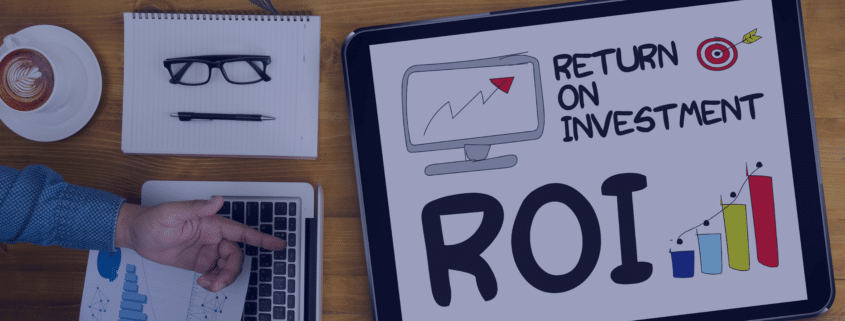The Hidden Costs of Inaccurate Payroll Reporting: Why Precision Matters
Outsourcing payroll services in South Africa has become increasingly more popular and ensuring the accuracy of payroll reporting is crucial for any business. It is not merely about paying employees but about doing so in a manner that upholds legal standards, maintains financial integrity, and fosters trust within the workforce. Payroll accuracy encompasses a range of critical elements that, if managed correctly, can support a business’s success and growth. Here, we explore the fundamental pillars that underpin accurate payroll reporting and highlight the hidden costs of inaccurate payroll reporting.
The Pillars of Accurate Payroll Reporting
Ensuring the accuracy of payroll reporting is crucial for any business. It is not merely about paying employees but about doing so in a manner that upholds legal standards, maintains financial integrity, and fosters trust within the workforce. Here are the fundamental pillars that support accurate payroll reporting:
Compliance with Legal Standards
Compliance is the cornerstone of payroll accuracy. In South Africa, this means adhering to the Basic Conditions of Employment Act (BCEA), which sets out the minimum standards for pay, working hours, leave, and other employment conditions. Non-compliance can result in severe penalties and damage a company’s reputation. Businesses must stay updated on changes in legislation to ensure they consistently meet these requirements. This involves understanding not only national laws but also any local regulations that might affect payroll processes.
Accurate Calculations
Precision in payroll calculations is essential. This includes correctly computing wages, overtime, bonuses, taxes, and various deductions such as retirement contributions and health benefits. Any errors in these calculations can lead to significant financial losses and legal complications. For example, underpaying employees might result in fines and legal disputes, while overpaying could strain the company’s finances. Utilising advanced payroll software can help automate these calculations, reducing the risk of human error and ensuring accuracy.
Timeliness
Timely payroll processing is crucial for maintaining employee trust and satisfaction. Employees rely on their wages to meet personal financial obligations, and any delays can cause significant inconvenience and distress. Consistent, on-time payroll processing demonstrates reliability and respect for employees’ contributions. Furthermore, timely payroll also ensures compliance with labour laws, which often stipulate specific pay periods and deadlines.
Record Keeping
Detailed and accurate record-keeping is vital for several reasons. First, it provides a clear audit trail that can be invaluable during financial audits or legal disputes. Records should include payroll registers, tax filings, proof of wage payments, and any correspondence related to payroll. Second, maintaining thorough records helps businesses analyse payroll trends and make informed financial decisions. For example, records can reveal patterns in overtime work or help forecast future payroll expenses. It also ensures transparency and accountability within the organisation.
Each of these pillars plays a critical role in ensuring that payroll reporting is accurate and reliable. By focusing on compliance, precision, timeliness, and meticulous record-keeping, businesses can foster a healthy, trusting relationship with their employees and maintain a stable financial foundation. Adopting best practices in these areas not only helps avoid legal and financial pitfalls but also contributes to a more organised and efficient business operation.
The Consequences of Inaccurate Payroll Reporting
The hidden costs of inaccurate payroll can lead to a cascade of issues that can significantly impact a business’s operations and overall health. Understanding these consequences is crucial for businesses to recognize the importance of maintaining accurate and compliant payroll processes.
Employee Dissatisfaction
When payroll errors occur, the immediate impact is felt by employees. Underpayment, overpayment, or delays in receiving wages can lead to significant dissatisfaction. Employees depend on their wages to manage their daily lives and financial obligations. Persistent payroll issues can erode trust in the employer, resulting in decreased morale, productivity, and even increased turnover. High turnover can lead to additional costs related to recruiting and training new employees, further straining the company’s resources.
Legal Penalties
Compliance with payroll regulations is not optional; it is a legal requirement. Failure to adhere to these regulations can lead to substantial fines and legal battles. In South Africa, for example, non-compliance with the Basic Conditions of Employment Act (BCEA) and other labour laws can result in penalties that can severely impact a company’s financial standing. Legal disputes not only drain financial resources but also divert management’s attention from core business activities, disrupting overall operations.
Financial Losses
Mismanagement of payroll can directly affect a company’s financial health. Payroll errors can lead to overpayments, underpayments, and misallocation of funds, all of which can create financial discrepancies. Over time, these errors can accumulate, leading to significant financial losses. Additionally, the cost of correcting payroll errors can be substantial, involving administrative time, potential overtime pay for corrective efforts, and even hiring external consultants to audit and rectify the issues.
Reputational Damage
A company’s reputation is one of its most valuable assets. Persistent payroll issues can tarnish this reputation, making it difficult to attract and retain top talent. Employees talk, and word spreads quickly, especially in the age of social media and online reviews. Negative reviews from current or former employees can deter potential candidates from seeking employment with the company. Moreover, clients and business partners might lose confidence in a company’s ability to manage its operations effectively, which can lead to lost business opportunities and partnerships.
Inaccurate payroll reporting not only affects the immediate financial aspects of a business but also its long-term viability and success. By prioritising accurate payroll processes, businesses can avoid these detrimental consequences and create a stable, trustworthy environment for both employees and stakeholders. This, in turn, supports sustained growth and positive business outcomes.
Ensure Your Payroll Accuracy with MASA
The hidden costs of inaccurate payroll will not only jeopardise your company’s financial health and compliance with regulations but also undermines employee trust and tarnishes your business reputation. The hidden costs of payroll errors—from legal penalties to employee dissatisfaction—highlight the critical importance of maintaining accurate payroll processes. By focusing on compliance, precision, timeliness, and meticulous record-keeping, businesses can avoid these pitfalls and build a robust, reliable payroll system.
At MASA, we understand the complexities and demands of payroll management. Our comprehensive payroll solutions are designed to ensure accuracy, compliance, and efficiency, helping you avoid the severe consequences of payroll errors. With our expert team and advanced payroll software, we take the hassle out of payroll processing, allowing you to focus on growing your business and fostering a positive work environment.
Ready to streamline your payroll processes and ensure impeccable accuracy? Visit MASA to learn more about our tailored payroll management solutions and how we can help your business thrive. Trust MASA to handle your payroll with the precision and reliability you need.












